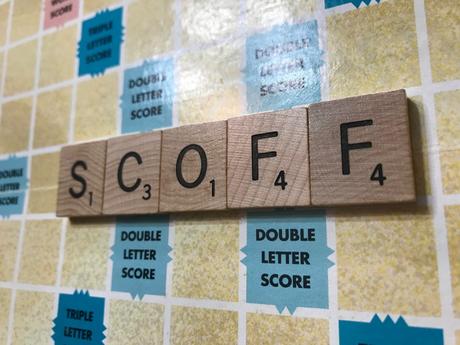I can’t remember who started it. Somehow, though, when I watch movies on Amazon Prime, the closed captioning kicks in. I generally don’t mind this too much since some dialog is whispered or indistinct. I also presume some kind of AI does it and it makes mistakes. That’s not my concern today, however. Today it’s word choice. Humans of a certain stripe are good at picking the correct verb for an action. I’ve been noticing that the closed captions often select the wrong word and it distracts me from the movie. (Plus, they include some diegetic sounds but not others, and I wonder why.) For example, when a character snorts (we’re all human, we know what that is), AI often selects “scoffs.” Sometimes snorting is scoffing, but often it’s not. Maybe it’s good the robots don’t pick up on the subtle cues.

This isn’t just an AI problem—I first noticed it a long time ago. When our daughter was young we used to get those Disney movie summary books with an accompanying cassette tape (I said it was a long time ago) that would read the story. Besides ruining a few movies for me, I sometimes found the verb choices wrong. For example, in Oliver (which I saw only once), the narrator at one point boldly proclaims that “Fagan strode into the room.” Fagan did not stride. A stride is not the same thing as a shuffle, or a slump. Words have connotations. They’re easily found in a dictionary. Why do those who produce such things not check whether their word choice accurately describes the action?
So when I’m watching my weekend afternoon movies, I want the correct word to appear in the closed captioning. Since the nouns generally occur in the dialog itself, it’s the verbs that often appear off. Another favorite AI term is “mock.” Does a computer know when it’s being mocked? Can it tell the scoff in my keystrokes? Does it have any feelings so as to care? AI may be here to stay, but human it is not. I’ve always resented it a bit when some scientists have claimed our brains are nothing but computers. We’re more visceral than that. We evolved naturally (organically) and had to earn the leisure to sit and make words. Then we made them fine. So fine that we called them belles lettres. They can be replicated by machine, but they can’t be felt by them. And I have to admit that a well-placed snort can work wonders on a dreary day.
